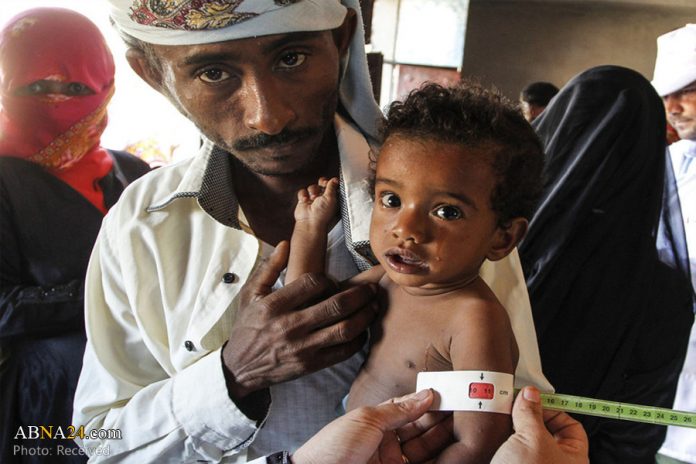UNICEF revealed on Wednesday that 50000 cases of blood disorder, thalassemia, are on record in Yemen, while 700 new cases of thalassemia are diagnosed yearly.
“In Yemen 700 new cases of thalassemia are diagnosed yearly,” the United Nations said in a report published on Wednesday.
“So far, 50000 cases are on record according to association of thalassemia, the optimum treatment of thalassemia is rare but a much-needed miracle,” it added.
The US-Saudi war on Yemen is entering a fifth year resulting in one of the world’s worst humanitarian crises. Almost half of health facilities have stopped functioning due to inadequate workforce, limited supplies, damage and ongoing insecurity. Damage to water and sanitation systems has posed difficulty in accessing clean and safe drinking water, which is a major contributor to what has been the world’s largest cholera outbreak, affected over 2.2 million people since April 2017. This outbreak, along with other vaccine preventable disease outbreaks and unmet health needs, highlight the increasing need for critical life-saving humanitarian aid.
“Across Yemen today, there are 1991 active sentinel sites that are detecting and electronically reporting on 28 different highly pathogenic diseases such as cholera, dengue, viral hemorrhagic fever, measles, pertussis and acute flaccid paralysis,” UNICEF said.
Globally, over 50,000 people are born each year with a severe form of Thalassemia, an estimated 80% of these cases occur in developing countries.
Thalassemia is a blood disorder passed down through families (inherited) in which the body makes an abnormal form or inadequate amount of hemoglobin. Hemoglobin is the protein in red blood cells that carries oxygen. The disorder results in large numbers of red blood cells being destroyed, which leads to anemia.




















